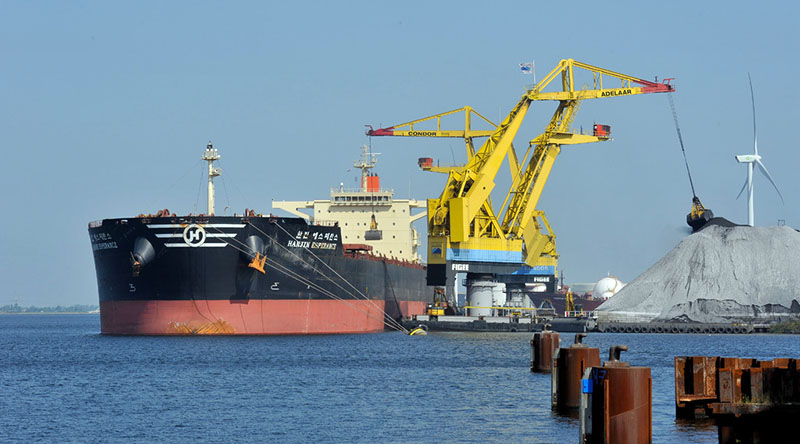The well-known coal terminals of Rietlanden in Amsterdam have a new owner: the large logistics company Rhenus.
Already in 2017 it had been announced by the Port of Amsterdam (port authorities), that from 2030 no more coal may be transshipped in the Amsterdam port. Rietlanden is looking ahead and, with a new owner, will seek new cargo flows.
Amports in Amsterdam reports on this as follows:
- Rietlanden, with more than 100 employees, has an annual capacity of 2.6 million tons, mainly targeting coal plants in Germany.
- Since 2017, Rietlanden was owned by Jera, an energy giant based in Singapore. Now the German logistics company Rhenus has reached an agreement to take over these two transshipment terminals.
- This transfer will take place in two phases and by 2027 both terminals will be in German hands. Rhenus already has about 25 branches in the Netherlands, but did not yet have a presence in Amsterdam, making this acquisition an important expansion.
- Jera and Rhenus stress that from 2030 it will no longer be allowed to transship coal at the Amsterdam port. For the transshipment terminals, this means that alternative cargo flows will be sought.
- Coal-free by 2030
This decision by Rietlanden and its new owners is in line with the Amsterdam Port Authority’s ambition to completely end coal transshipment by 2030. This move was announced back in 2017, given the limited future prospects of coal, which emits significant amounts of greenhouse gases when burned.
This development is a positive sign for the port, especially considering that the Amsterdam Court of Auditors previously questioned the policy of making the port coal-free by 2030. There was criticism because until then this ambition had only been set out in declarations of intent and policy documents, without concrete steps for implementation.
Farewell to cargo, not customers
Koen Overtoom, CEO Port of Amsterdam: “Since the announcement of our commitment to be a coal-free port by 2030, great strides have been made by the coal terminals in our port. We are saying goodbye to cargo and not to customers. Together with them, we are working on a future-proof, climate-neutral port. We are therefore very pleased to welcome this new and large logistics player, who is in a position to build on the ambitions of us all and transform Rietlanden into a terminal with great potential for the future.”
So far Amports and Koen Overtoom
In time, this change of use of the port and its terminals will also affect shipping companies worldwide, which will undoubtedly discuss this with charterers and shippers. However, anyone who wants to know more about changes in the Dutch seaports that will (in time) affect shipping can of course contact us. As local experts, we can help obtaining more information or making contacts.
(source: Amports – Amsterdam)

